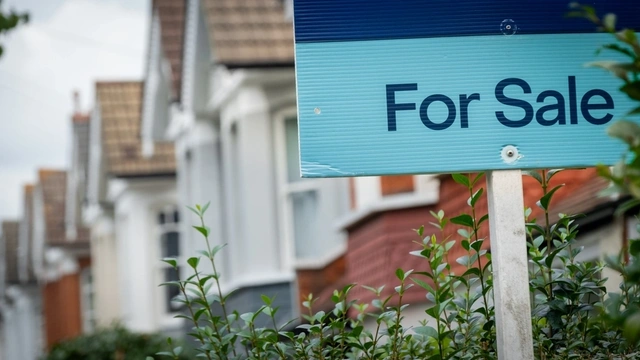Thinking of buying a home? You’re not alone. More and more people are borrowing to secure a place before prices rise even further.
In fact, the latest figures from the Bank of England show that borrowing jumped to £1.7 billion– a huge increase from £1.1 billion the month before. Credit card spending made up a big chunk of this, hitting £1.1 billion, the highest since November 2023.
So, what’s behind this surge, and what does it mean for anyone looking to buy a home?
Why are more people borrowing?
Right now, many people feel confident about taking on debt to buy a home. Here's why:
✅ They feel hopeful about lower interest rates
✅ Many want to buy before house prices climb even higher
✅ Some are rushing to beat the April tax changes
But with house prices still climbing and borrowing levels soaring, it's important to make sure you're not stretching yourself too thin.
With tax changes coming in April and everyday costs still high, taking on more debt now could put extra pressure on your finances in the months ahead. If you're thinking about borrowing, it's worth taking a step back and asking: can I really afford this in the long run?
Rising house prices: what does it mean for you?
House prices have now gone up for six months in a row, and some areas – like North West England and Northern Ireland – are seeing even bigger jumps. The average home now costs £270,493, and as demand increases, prices are being pushed even higher.
One reason for this rush? Changes to stamp duty (the tax you pay when buying a house) are coming in April, and buyers are racing to get their purchases over the line before then. If you’re hoping to buy your first home, it might feel frustrating to see prices rising so quickly. But don’t panic. Rushing into a purchase just to beat a deadline might not always be the best move – making sure it’s the right home for you (at the right price) is what really matters.
Could inflation and interest rates affect your plans?
Inflation (the rising cost of everyday items), which briefly dropped to the Bank of England’s 2% target, is creeping up again. It’s currently at 3% and could rise to 3.7% later this year. Meanwhile, interest rates have been lowered to 4.5%, the lowest in 18 months.
What this means for home buyers:
- Higher inflation might keep mortgage costs up
- The Bank of England might not cut interest rates as expected
- First-time buyers might benefit if the market slows down
This could slow down the housing market – which could actually be good news for first-time buyers waiting for prices to settle.
The housing shortage means prices could stay high
One thing that hasn’t changed? There still aren’t enough homes to meet demand. Even if borrowing slows down, the housing shortage means prices could remain high.
If you’re planning to buy, the most important thing is to make sure it’s affordable for you. The housing market can be unpredictable, and what feels like a good deal today might not look the same in six months’ time. Taking these steps can help:
- Set a budget you can comfortably afford
- Don't rush just because others are
- Think about your long-term needs, not just today's market
Taking your time, setting a budget you're comfortable with, and not overextending yourself could help you make a decision that feels right – both now and in the future. It can also be helpful to stress test your budget by considering how you’d cope if your circumstances changed, like if interest rates or living costs went up.
Fiona is a personal finance writer with over 7 years’ experience writing for a broad range of industries before joining Ocean in 2021. She uses her wealth of experience to turn the overwhelming aspects of finance into articles that are easy to understand.
![Email icon]()
Become a money maestro!
Sign up for tips on how to improve your credit score, offers and deals to help you save money, exclusive competitions and exciting products!
Find this useful? Share it with others!









